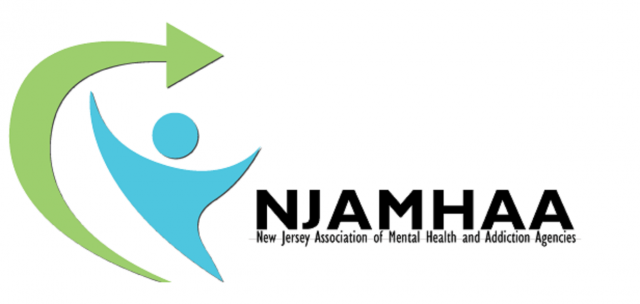October 4, 2024
October 6 to 12, 2024 Is Mental Illness Awareness
Week
October 10th Is
World Mental Health Day
October 6th through October 12th marks the national recognition of Mental Illness Awareness Week (MIAW). The New Jersey Association of Mental Health and Addiction Agencies, Inc. (NJAMHAA) is pleased to join the community, as well as healthcare providers and other stakeholders across the country, in recognizing the importance of this week and endorses the National Alliance on Mental Illness' (NAMI's) theme for MIAW, My Mental Health at Work.
In the American Psychological Association's (APA's) 2023 Work in America Survey, "55% of workers strongly (21%) or somewhat (34%) agreed that their employer thinks their workplace environment is a lot mentally healthier than it actually is, and 43% reported worrying that if they told their employer about a mental health condition, it would have a negative impact on them in the workplace." In addition, 77% of workers reported experiencing work-related stress in the past month and 57% had experienced "negative impacts because of work-related stress that are sometimes associated with workplace burnout." These include emotional exhaustion, a desire to keep to themselves, and irritability or anger with coworkers and customers, according to the APA. Furthermore, 57% of survey respondents indicated that their employers do not adequately support workers' mental health or overall well-being.
"Mental health support is an essential factor for increasing staff recruitment and retention. This has become even more critical as in many professions - most notably behavioral health care - are experiencing severe workforce shortages," said Debra L. Wentz, PhD, President and CEO of NJAMHAA.
"NJAMHAA strives for a world in which adults, children and families are empowered by a well-resourced and effective network of high-quality, integrated healthcare and social services. To achieve this vision, the behavioral healthcare workforce needs to be substantially larger and stronger, and to do this, all workers need to feel supported in their places of employment," Dr. Wentz said.
In fact, meaningful employment -including the work itself, as well as the culture and environment - is a vital part of mental wellness. Behavioral healthcare providers empower individuals to secure and thrive in jobs not only by strengthening their mental health, but also by developing skills and confidence. Such success stories are featured in NJAMHAA's Diverse Faces: All Are Worthy of Full Investment campaign. For example, after enduring many years of abuse and other traumatic experiences, Alice is thriving in a job that she secured as a result of mental health care and support with writing a resume that she received from NewBridge Services. Marcus and Tamika have evolved through services provided by The Bridge and Youth Consultation Service, respectively, and they are now employed at these organizations.
"Behavioral healthcare providers have made many successes, including stronger mental health and achievement of educational and career goals, possible for thousands of individuals, and they need to receive the same kind of support from their own employers," Dr. Wentz said.
"This is certainly true for everyone, regardless of the chosen profession. For example, employers should offer employee assistance programs; encourage individuals to take days off for mental health reasons; and provide insurance that covers behavioral health services to demonstrate that they care for their staff," Dr. Wentz added. "By promoting their team members' well-being and job satisfaction, employers will also foster loyalty that will benefit their organizations, as well as individuals who work with them."



